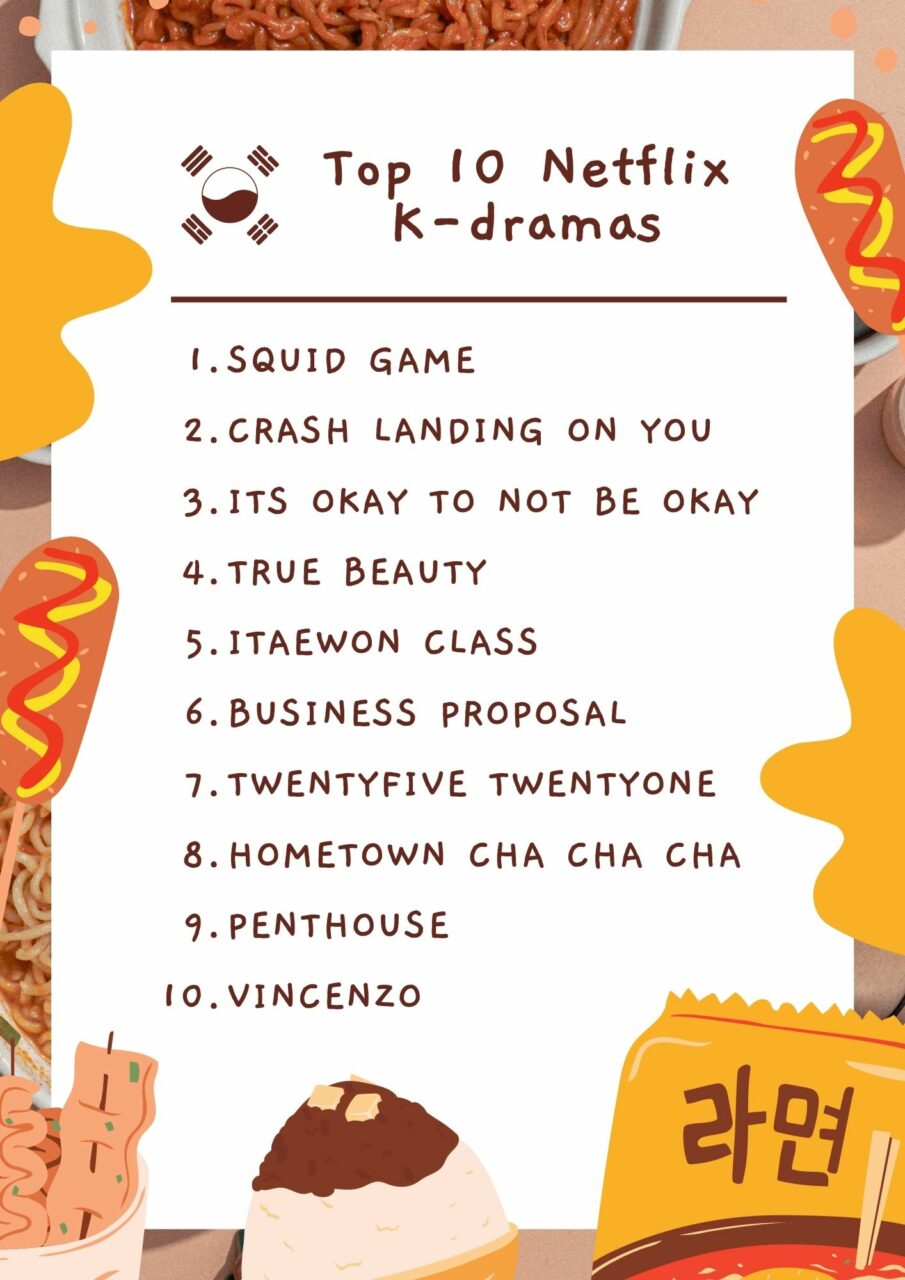Ever since its release on Sept. 17, 2021, the Korean drama “Squid Game” captivated the world with its unique storytelling of class conflicts in a dystopian society.
According to Netflix’s Global Top 10 lists, “Squid Game” became the most popular series reporting at around 1.65 billion hours of viewing in the first 28 days. It stood in their top 10 list for 20 weeks and continues to gain viewership. Netflix also announced via Twitter that “Squid Game” is renewed for a second season.
Yoonjae Cho, BYU Korean teaching assistant from Seoul, South Korea, said no one could have predicted the “Squid Game” phenomenon to blow up on the large scale that it did. He said it is uncommon to see non-American shows dominate the world, and “Squid Game” winning six Emmys at the 74th Emmy Awards is a historic feat for Asian representation.
Cho said through this drama South Korea was able to influence a whole generation globally and expose westerners to the idea that Korea is not just about BTS and Gangnam Style.
“I believe it changed more people in the U.S. to think Korean and Asian films are fascinating to watch too,” Cho said. “The childhood games that Korean people played back in the 80s and 90s, like honeycomb shape cutting, red light-green light, tug of war, squid game, and marble game, gained so much attention from American kids too.”
He went on to explain how the rise of interest in Korean culture has heavily influenced American pop culture and the people in America. As a Korean 201 TA, Cho said most of his students wanted to take the class because of Korean dramas and K-pop’s influence. He said they learned to love Korean culture and gained an interest in learning the language.
“It’s phenomenal. Nothing is better than more people wanting to learn, hear and experience your culture,” Cho said.
BYU communications professor Kevin John said the world is currently at the head of what is called “The Korean Wave,” aka Hallyu, where Korean culture is surging in popularity and spreading all around the world. John recently led the first BYU communications study abroad program to South Korea this past summer to examine the interplay between eastern and western culture. He similarly compared the growth in popularity of K-pop to how the Beatles first came over from Great Britain and surged the popularity of British music in the United States.
John said South Korea’s economy is currently booming and enjoying newfound prominence throughout the world, which has caused an exponential increase in popularity and cultural transference. He said he was fascinated when he visited South Korea because of how it essentially functions “as an island — yes it’s a peninsula — but you got North Korea to the North and they are effectively cut off that way.”
John said South Korea’s trade and many other aspects of the country have been influenced because of that, but South Korea has also mastered the connectivity of people worldwide through their digital power.
“Seoul especially is on the cutting edge when it comes to digital connectivity,” John said. “Their infrastructure there puts ours to shame. They can manage the spread of their influence and their culture very easily.”

Bella Hsiung, an avid Korean drama fan, said she thinks the growing appeal of Korean dramas and K-pop is because of the prevalence of the vast amount of content within this niche media. Unlike American media where most celebrities heavily focus on protecting their privacy, Korean pop culture content relies on a lot of promotions and creating, in some sense, a parasocial relationship with their fans.
“For example, like K-drama content, you see a lot of behind the scenes stuff and K-pop, similarly, has a ton of reality TV and there’s a large emphasis on these popular, public figures showing a lot of their life,” Hsiung said.
She said the intimate connections make fans become more attached to these Korean celebrities because it makes them feel like you know them personally. While American celebrities have more speculation on their private lives, Korean entertainment showcases even the smallest interactions because everything is filmed for media content.
Similarly, K-pop fan Vivine Chen said she loves K-pop because of its endless content. She said with Western media, she has to wait years for a new album to release, but with Korean media, the most she has waited for idol content is around a week. She also said there are new Korean dramas coming out on Netflix continuously which has grown the exposure of Korean films to those unfamiliar with Korean culture.
“Koreans just know how to market and appeal to westerners,” Chen said. “They took the opportunity and sent a bunch of their idol groups to America on talk shows and pushed their foreign members to speak more English to appeal to their international audience.”
Nicole Olson, BYU Korean Student Association’s creative director, is from South Korea and said “it’s about time” their country’s culture gets the recognition it deserves.
“I just have so much Korean pride and it makes me so happy when I see people celebrating and interested in that,” Olson said. “I just hope that they show interest in a respectful way, but it makes me excited and I’m just very proud of my country.”
Source: Universe















